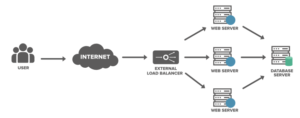
Introduction
In the realm of database management and distributed systems, ACID and CAP principles govern data integrity and availability interplay. Understanding these theories is vital as organizations tackle growing datasets and intricate infrastructures.
In this blog, we delve into ACID (Atomicity, Consistency, Isolation, Durability) and CAP (Consistency, Availability, Partition Tolerance). We uncover their significance, explore real-world strategies, and unveil how they guide architects and designers.
Discover how ACID and CAP theories navigate data’s complex landscape, empowering informed choices in data management and system design. Join us to decode the intricate dance of data integrity, availability, and optimization.
ACID Theorem: Ensuring Data Integrity in Transactions
In database management and transaction processing, the ACID theorem encompasses a set of principles delineating the attributes of a trustworthy and uniform database system. ACID encapsulates Atomicity, Consistency, Isolation, and Durability, which, when intertwined, secure the reliable execution of database transactions while upholding data integrity.
- Atomicity: Transactions are considered as indivisible units of work. This tenet mandates that within a transaction, either all operations attain success or none of them are executed at all.This prevents incomplete or partial changes to the database.
- Consistency: Transactions take the database from one consistent state to another. The database must satisfy certain integrity constraints before and after a transaction, ensuring that data remains accurate and valid.
- Isolation: Transactions are executed in isolation from each other. Other transactions cannot observe the effects of one transaction until it undergoes commitment. This prevents interference between concurrent transactions.
- Durability ensures that once a transaction is committed, its changes become permanent and are stored in a manner that can withstand system failures or crashes. This ensures that the data remains intact even in the face of unforeseen events.
ACID properties hold utmost significance in scenarios prioritizing data accuracy and reliability, notably in realms like financial systems or critical information handling applications.
CAP Theorem: Balancing Trade-offs in Distributed Systems
This theorem by Eric Brewer addresses distributed systems’ consistency, availability, and partition tolerance amid network challenges. This theorem suggests full attainment of all three properties is unattainable in distributed systems.
- Consistency : Every read operation returns the most recent write, ensuring that all nodes in the system see the same data at the same time.
- Availability : Every request (read or write) receives a response, even if it may not contain the most recent data. The system remains operational and responsive even when some nodes or components experience failures.
- Partition Tolerance : The system continues to function even when network partitions occur, meaning that some nodes are unable to communicate with each other.
According to the CAP theorem, a distributed system can ensure at most two out of these three properties. In scenarios where network partitions are a possibility, the system must make a trade-off between consistency and availability. It may prioritize consistency over availability (CP) or prioritize availability at the potential expense of consistency (AP).
While ACID and CAP offer valuable frameworks, real-world systems balance trade-offs using tailored strategies and technologies. Hence, architects and designers carefully consider the theorems when making choices about data management and distributed system design.
Conclusion
In conclusion, ACID and CAP theorems are pivotal, shaping database systems and distributed architectures.
ACID Theorem : The ACID principles (Atomicity, Consistency, Isolation, and Durability) provide a set of guarantees that ensure the reliability and integrity of transactions within a database. ACID properties are essential for applications where data accuracy and consistency are paramount, such as financial systems or critical enterprise applications. They guarantee reliable transaction processing, uphold data integrity, and gracefully recover from failures.
CAP Theorem : The CAP theorem addresses the trade-offs inherent in distributed systems, particularly when dealing with network partitions or failures. It states that a distributed system cannot simultaneously provide full Consistency, Availability, and Partition Tolerance under all circumstances. When faced with a network partition, a system must choose between ensuring Consistency and Availability. This theorem helps understand distributed system challenges and guides balancing consistency and availability based on specific use cases.
Both the ACID and CAP theorems offer valuable insights into the complexities of building robust and reliable systems. ACID ensures transactional data integrity, while the CAP theorem tackles the intricacies of consistency and availability in distributed setups. It’s essential to acknowledge that practical systems frequently navigate nuanced compromises beyond rigid theorem interpretations. Systems use various technologies and strategies to balance data reliability, availability, and performance. They align with unique application requirements, ensuring an optimal equilibrium.




[…] Compliance : ACID (Atomicity, Consistency, Isolation, Durability) properties ensure data consistency and […]
[…] offers ACID guarantees at the document level, ensuring data integrity for individual […]